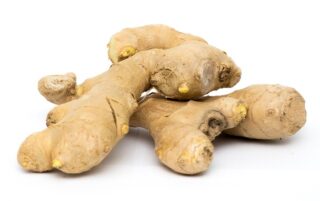Have you heard of natto? It’s a fermented soybean paste that’s popular in Japan, and it’s gaining popularity around the world as more people discover its incredible health benefits. In this blog post, we will explore five of these benefits and discuss why adding nato to your diet could have a positive impact on your health.
1. Rich in Probiotics
Natto is naturally rich in probiotics, which are beneficial bacteria that can help improve your digestive health. Probiotics can help keep the population of “good” bacteria in your gut balanced so that you can better absorb nutrients from food and fight off harmful bacteria. They can also help reduce bloating, gas, and constipation.
2. High in Protein
Natto is a great source of protein. One tablespoon contains two grams of protein. This makes it an excellent addition to any vegetarian or vegan diet, as well as for those looking to add more plant-based proteins into their daily meals.
3. Full of Vitamins, Minerals and Nattokinase
Natto is packed with vitamins and minerals like Vitamin B12, zinc, magnesium, iron, potassium, phosphorus, and calcium. Additionally, natto has been found to be high in antioxidants which can help protect against free radical damage caused by environmental factors like pollution or UV rays from sunlight.
Natto is also a great source of nattokinase, an enzyme with a variety of health benefits. This enzyme has been studied for its potential to lower blood pressure, reduce inflammation, and improve circulation. Studies have shown that it may help prevent cardiovascular diseases like stroke and heart attack as well as metabolic disorders such as diabetes.
Additionally, nattokinase has been found to have anti-cancer properties and can help boost the immune system. It can also be helpful in improving digestion by breaking down proteins and carbohydrates into smaller molecules more easily absorbed by the body.
Furthermore, nattokinase has been investigated for its ability to break down fibrin, a protein involved in clot formation, which could potentially help reduce the risk of deep vein thrombosis and other dangerous blood clots. On top of all these health benefits, scientists believe that nattokinase may even reduce the risk of developing Alzheimer’s disease due to its ability to fight against oxidative stress and inflammation in the brain. All these findings reflect why natto is such an important part of traditional Japanese cuisine today.
4. Boosts Immunity
The probiotic content of natto helps boost immunity by helping strengthen the body’s natural defense system against infections and illnesses caused by bacteria or viruses. Additionally, the Vitamin C content helps support cell growth and repair while also fighting off infection-causing microbes.
5. Improves Heart Health
Natto is low in saturated fat but high in unsaturated fats which can help improve heart health by lowering cholesterol levels and reducing inflammation throughout the body.
How to eat Natto?
Check out this youtube video on how to enjoy the most common preparation of nato. You can usually find these packs in your local asian food market. Best ways to eat Natto
Natto recipes
Check out these great recipes to get you started with these incredible superfood. HOW TO EAT NATTO (9 EASY NATTO RECIPES AND 30 MORE IDEAS)
Conclusion
All in all, adding nato to your diet has numerous health benefits, from boosting immunity to improving heart health. All these benefits make it worth considering as part of a healthy lifestyle routine!
Do you have a child on the autism spectrum and are looking for ways to help them unlock their potential? If so, you’ve come to the right place. Believe it or not, natural treatments can make a tremendous difference when it comes to helping children with autism reach their full potential.
In this blog post, we’ll explore 10 naturopathic treatments that may provide relief from autism-related symptoms such as anxiety and social challenges. By arming yourself with knowledge about these therapies, you can find solutions tailored specifically to your child’s needs so that they can learn and grow into their best selves!
10 natural treatments for autism spectrum disorder.
Autism spectrum disorder (ASD) is a neurodevelopmental disorder characterized by difficulties with social interaction, communication, and repetitive behaviors. Some people with ASD also have sensory processing issues. Here are a number of natural treatments that can help improve the challenges associated with ASD.
1. Probiotics
Probiotics are beneficial bacteria that help support gut health. Research into probiotics and autism has revealed promising results.
In a randomized, double-blind study, children with ASD were given either active multi-strain probiotic or placebo for 12 weeks. The results demonstrated that the group taking the active probiotic had improved symptoms of autism such as increased social interaction, better communication, improved sleep habits and more positive mood.
Additionally, another study reported that when children with ASD were supplemented with specific strains of Bifidobacterium longum for four months, their symptoms associated with anxiety and depression were significantly reduced compared to those who took a placebo.
Moreover, in a study involving over 100 children with ASD and ADHD, researchers found that supplementation of Lactobacillus rhamnosus was effective in improving certain behaviors observed in these disorders. Taken together these studies demonstrate potential beneficial effects of supplementing probiotics in individuals with ASD.
2. Omega-3 fatty acids
In addition to their role in brain development and function, omega-3 fatty acids also have other potential benefits for people with ASD. Studies have shown that omega-3 supplements may improve focus, behavior, and social skills in children with ASD.
For instance, one randomized controlled trial found that children who took omega-3 supplements had better scores on tests of nonverbal communication and problem solving than those who did not. Other studies have suggested that taking omega-3 supplements can reduce irritability, depression, and anxiety symptoms in people with ASD.
Omega-3 fatty acids may also improve sleep quality in those with autism spectrum disorder. A 2020 study involving 51 participants showed that children given omega-3 supplements had improved sleep compared to those who were given a placebo. Additionally, some research suggests that taking omega-3 supplements may reduce hyperactivity levels in individuals with ASD.
Finally, there is evidence to suggest that omega-3 fatty acids may help to reduce inflammation associated with ASD symptoms. One study evaluated the effects of a fish oil supplement containing both EPA and DHA (two types of omega-3 fatty acids) on biomarkers of inflammation in adolescents and young adults with autism spectrum disorder. The results showed a significant reduction in markers of inflammation after 12 weeks of supplementation compared to baseline measurements.
Overall, the evidence suggests that omega-3 supplements may be beneficial for individuals with autism spectrum disorder by improving communication skills, reducing symptoms such as anxiety and depression, improving sleep quality, reducing hyperactivity levels, and decreasing inflammation associated with ASD symptoms.
3. Essential oils
Research has demonstrated the effectiveness of essential oils in helping to alleviate some of the symptoms associated with ASD, particularly in regards to social interaction and communication.
A study conducted by Zonfera et al (2015) found that lavender oil was effective at improving social interaction and communication in pediatric patients who had been diagnosed with ASD. The study employed a randomized trial design involving 30 children between the ages of 5 and 11. Each participant was evaluated by a team of clinicians, including psychiatrists and psychologists, before being randomly assigned to either an intervention group or control group. The intervention group received four weeks of aromatherapy sessions where they were exposed to lavender essential oil diffused via a vaporizer, while the control group received no exposure. After four weeks, participants in the intervention group showed significant improvements on measures such as verbal communication skills and overall social functioning compared to those in the control group.
A second study conducted by Hanna et al (2017) also found evidence that essential oils may be beneficial for individuals with ASD based on their findings involving lemon balm oil. This randomized clinical trial included 40 children between the ages of 6 and 12 who had been diagnosed with ASD. Participants were divided into two groups; one received lemon balm oil diffused through a vaporizer for four weeks while the other did not receive any exposure to aromatherapy treatments. At the conclusion of this study, participants who had been exposed to lemon balm oil showed improved sensory processing ability compared to those who did not receive treatment. In particular, they demonstrated better ability in responding correctly to auditory-based instructions which is indicative of improved sensory processing skill.
Overall, studies have consistently demonstrated that exposure to certain essential oils may help improve social functioning and sensory processing abilities for individuals with ASD. While further research is needed to explore more specific mechanisms behind these effects, current evidence does suggest that aromatherapy may provide some benefit for people affected by ASD when used alongside other forms of interventions such as cognitive behavior therapy and medications.
4. Music therapy
Music therapy has been widely studied in regards to its effectiveness in helping individuals with Autism Spectrum Disorder (ASD). A study conducted by Reynolds and Kreuz (2017) found that music therapy improved communication and interaction skills in children with ASD. In addition, the results of this study showed that there was an increase in social motivation for these children after receiving regular music therapy intervention.
Similarly, Darrow et al. (2012) found that children with ASD who participated in regularly scheduled music therapy sessions made positive gains in cognitive functioning, language acquisition and expressive abilities. Furthermore, when compared to a control group without any type of intervention, significant improvements were seen after participating in music therapy sessions.
In a more recent study, Berliner et al. (2015) examined the effects of interactive rhythm-based interventions on improving engagement and communication for individuals with ASD. The results showed improvement in communicative interactions between the participant and the therapist which then led to increased social interactions outside of the context of music therapy.
Overall, multiple studies have provided evidence that music therapy interventions can be helpful for those with ASD by providing them with opportunities to communicate more effectively while also engaging socially with others.
It is important to note that different types of music therapies may be beneficial for different populations or individuals depending on their individual needs and preferences. Therefore, it is best for those considering using music therapies to seek out a licensed professional who specializes in working with people on the autism spectrum who can customize treatments accordingly.
5. Magnesium
Magnesium supplementation has been linked to improvements in individuals with autism spectrum disorder (ASD). Studies have shown that magnesium plays a role in neurodevelopment, and can positively influence behaviors reported in those with ASD.
A 2017 meta-analysis of randomized, placebo-controlled trials found that magnesium supplementation reduced repetitive behaviors, hyperactivity, and irritability in individuals with ASD. Their review also showed evidence for improved sleep quality when magnesium was supplemented to children and adolescents with autism spectrum disorder. In addition to these randomized controlled trials, some open label studies suggest that adding magnesium to the diets of those with ASD can improve language abilities and socialization, compared to behavior before supplementation.
A more recent study published this year suggests that supplementing children with autism with magnesium could improve their cognition. The study reported improved scores on the Autism Treatment Evaluation Checklist (ATEC) when participants were given a combination of zinc and magnesium supplements over 10-12 weeks. There was no significant improvement noted for those given the placebo treatment instead. Additionally, results from a survey of parents suggested reduced levels of anxiety, as well as improvements in social interaction when their child had received the combination supplement treatment.
6. Massage
Massage therapy has been shown to have a wide range of benefits for people with Autism Spectrum Disorder (ASD). One interesting study in the Journal of Autism and Developmental Disorders found that massage therapy significantly improved communication and social interaction skills in children with ASD.
The study recorded the positive effects from an 8-week program of massage therapy, noting that participants were able to “establish eye contact for longer periods, initiate more conversations and become more comfortable when interacting with peers.” This is an important finding as improving these skills can help reduce anxiety in children with ASD and make it easier for them to connect with others.
Other studies have investigated the potential stress relief associated with massage therapy for people with ASD. One 2013 study examined how touch therapy through massage could aid in reducing tension and arousal levels among children with ASD. The results showed that after eight weeks of massage frequency, both tension levels and heart rate variability decreased significantly. Moreover, problems such as repetitive behaviors, self-injurious behavior, hyperactivity, emotional outbursts, physical aggression and communication difficulties were also reported to be reduced during the intervention period. Further research into this area has suggested that massage can be beneficial not only for tension relief but also for helping individuals with autism improve their sleep quality and reduce irritability levels.
In addition to its potential benefits associated with stress relief and communication skills, some studies suggest that massage may also be beneficial in improving muscle tone and managing spasticity in individuals living with autism spectrum disorder. A 2010 study published in Complementary Therapies in Clinical Practice looked at how myofascial release (MFR) could be used to improve muscle tone in children diagnosed on the autism spectrum who had significant motor coordination issues due to spasticity or hypotonia. The results showed that after 12 weeks of MFR sessions targeting specific areas of tightness or immobility, there was a significant improvement in muscle tone across all body regions tested. These findings indicate that therapeutic massage could help improve spasticity and overall mobility in individuals living with autism spectrum disorder; this could then lead to increased independence when performing activities such as walking or dressing oneself.
Overall, research shows that massage therapy has a range of potential benefits for people living with autism spectrum disorder; from improving communication skills to reducing tension levels or managing spasticity related mobility issues. As such, therapeutic massage should be considered as part of an integrated care plan when treating individuals diagnosed on the autism spectrum disorder.
7. Taurine
Taurine is an amino acid found naturally in the body and also in many foods such as meat, fish, dairy products, and eggs. Recent research has shown that supplementing with taurine may be beneficial for individuals with autism spectrum disorder (ASD).
Several studies have demonstrated that supplementation with taurine can improve communication skills, reduce repetitive behaviors, and even increase overall functioning in people on the autism spectrum.
A study from the University of California Los Angeles (UCLA) School of Medicine evaluated taurine supplementation on children aged 5 to 14 years old who were diagnosed with ASD. The results indicated that those given taurine showed significant improvements in their communication abilities and a decrease in repetitive behaviors compared to those receiving a placebo.
Another study conducted by researchers at Indiana University School of Medicine found that when a group of children with ASD were supplemented with taurine for 3 months, significant improvements were seen in symptoms such as language deficits, social impairments, and hyperactivity. These findings suggest that taurine may be an effective therapy option for managing some of the symptoms associated with ASD.
In addition to its role in reducing symptoms associated with autism, research has also suggested that supplementing with taurine can help to improve mood and reduce anxiety levels in people on the autism spectrum. A study published in Neurochemical Research found that adolescents given 500mg of taurine per day experienced a significant reduction in levels of anxiety and improved mood after only 6 months. These findings further support the potential benefits of supplementing with taurine for individuals on the autism spectrum as well as other population groups.
8. Diet
Dietary therapies have been studied as a potential treatment for autism spectrum disorder (ASD). Research has demonstrated that special diets may help improve the behavioral symptoms of ASD. For example, one study found that a gluten-free/casein-free (GFCF) diet helped reduce irritability, hyperactivity and stereotypic behavior in children with ASD.
Additionally, a recent Cochrane review concluded that there is evidence to support the use of GFCF diets and other dietary approaches to improve communication, social interaction and overall functioning for individuals with ASD.
Other studies have suggested that diets that are low in carbohydrates and high in proteins may be useful for reducing challenging behaviors in people with ASD.
Personally, I have also seen benefit in food sensitivity testing for children and adults with ASD. Food sensitivities can place an added burden of low level inflammation on individuals with ASD. Once food sensitivities are identified and eliminated improvements in social behaviors and sleep are often seen within a couple of months. For more information on food sensitivity testing click here.
9 Yoga
Studies on yoga and autism have reported promising results. A systematic review of 12 studies on yoga for various forms of autism found that it improved social behaviors, communication skills, and overall functioning in children.
Another study explored the effects of a specialized yoga program designed specifically for children with autism and found that participants showed significant improvements in mood, motor behavior, communication abilities, and overall well-being.
Researchers believe that mindful practices like yoga may be beneficial for individuals with autism spectrum disorder due to their calming effects on the body and mind. For example, a study on mindfulness-based treatments for autism spectrum disorder suggested that practicing breathing exercises and postures can reduce challenging behaviors. Additionally, research has shown that yoga helps improve focus, concentration, sensory integration abilities, communication skills, self-regulation skills, flexibility in activities of daily living (ADLs), as well as overall quality of life for those with autism spectrum disorder.
Moreover, research suggests that yoga can help improve cognitive performance by improving attention levels and reducing stress hormones such as cortisol. One study looked at the effects of a guided meditation therapy program on cognitive functions in children with autism spectrum disorder and found that those who participated experienced improved verbal memory scores and had better working memories than those who did not participate in the program.
Overall, there is an increasing body of evidence suggesting that regular practice of yoga can be beneficial for people with autism spectrum disorder in multiple ways. Practicing mindful exercises like yoga helps reduce stress levels while also providing a calming effect to both mind and body which can ultimately help enhance social interactions as well as communication skills in these individuals.
10 Mindfulness meditation
A study conducted by Sun and colleagues (2015) demonstrated the positive effects of mindfulness meditation on children with autism spectrum disorder. In this study, the participants were split into two groups: those that received mindfulness-based therapy and those that did not. The results showed that those in the mindfulness group had significantly higher levels of attentional focus than those in the control group. Furthermore, their parents reported a decrease in anxiety and depression symptoms in both groups.
Another study published by Zakaria et al. (2013) looked at the effects of mindfulness interventions on adults with autism spectrum disorder. The study found that participants who participated in the mindfulness meditation intervention reported significant improvements in overall well-being and quality of life, as well as reductions in anxiety and depression levels compared to those who did not receive the intervention.
Finally, a systematic review conducted by Sze et al. (2017) examined how mindfulness-based interventions can help improve social functioning among individuals with autism spectrum disorder. The reviewers concluded that there is evidence to suggest that mindfulness may be an effective tool for improving social functioning due to its ability to reduce stress and increase self-awareness. This may then lead to improved interactions with others, including family members and peers, which could ultimately result in more successful social relationships over time.
Naturopathic treatment for your child with autism
There is no one-size-fits-all answer when it comes to choosing the best naturopathic treatment for a child with autism. However, there are a few things to keep in mind when making this decision.
First, it’s important to consult with a qualified naturopathic doctor to get a customized treatment plan that is tailored to the needs of your child. There are many different naturopathic treatments available, and each one may be more or less effective depending on the individual child’s circumstances.
Some of the most common treatments used in naturopathy include dietary changes, supplements, homeopathy and lifestyle interventions. It’s important to work with your doctor to find the right combination of treatments for your child.
Additionally, it’s important to be patient and allow enough time for the treatments to take effect. Many children show positive results within a few months, but some may take longer depending on their individual situation.
Overall, choosing the best naturopathic treatment for a child with autism can be a complex process. However, by working closely with a qualified doctor and being patient, you can help your child achieve improved health and quality of life.
The Top 10 Supplements for Kids’ Health
As a parent, you want what’s best for your child. When it comes to their health, you want to make sure they’re getting all the nutrients they need to grow and thrive. But sometimes, despite our best efforts, kids don’t get all the nutrients they need from their diet alone. That’s where supplements come in.
Multivitamin:
A multivitamin is a supplement that contains a variety of vitamins and minerals. It’s a good way to ensure that your child is getting all the essential nutrients they need, even if their diet is lacking in some areas.
Kids often go through periods where they’re less than eager to eat certain foods. This is a normal stage in the development of taste buds, and starting with a good quality multivitamin will help your child get back on track during this time!
Compliance is the most important thing when it comes to giving kids supplements. If your child will not take their vitamins you might as well throw them in the garbage. It’s important to try a few different brands in order to see if your child has a specific preference. A naturopathic doctor with experience in working with kids can be very helpful in choosing a few options.
Some of my most frequently recommended include: SmartyPants Kids Formula, ND Shake for Kids by Orange Naturals, and Kids Multivitamin Liquid spray by Organika.
Probiotic:
Probiotics are live bacteria that are good for gut health. They can help with digestion and absorption of nutrients, and they can also help boost the immune system.
There are many different strains of probiotics and many of them have specific effects for specific conditions. This is another reason why it is important to consult with a Naturopathic doctor before choosing which product is right for your child. Some of my most recommended brands include: Culturelle, BioGaia, Vita Aid, and Genestra.
Fish Oil:
Fish oil is a good source of omega-3 fatty acids, which are important for brain development and heart health.
Omega-3 fatty acids are important for many aspects of health, including brain development and heart health. Research has shown that omega-3 fatty acids may help improve cognitive function in children, as well as protect against certain conditions such as depression and ADHD.
For example, a study published in the journal Scientific Reports found that children who consumed higher amounts of omega-3 fatty acids had better reading comprehension and short-term verbal memory compared to those with lower intakes. Another study published in BMC Public Health reported that children with higher levels of omega-3 fatty acids in their blood were less likely to exhibit symptoms of depression.
Additionally, studies have shown that consuming adequate amounts of omega-3 fatty acids is important for supporting healthy cardiovascular function in children.
For example, one study published in the American Journal of Clinical Nutrition found that higher intakes of fish oil was associated with improved arterial elasticity in adolescents. Overall, there is strong evidence to support the benefits of consuming omega-3 fatty acids for kids, both for brain development and overall health.
Some brands that I frequently recommend are NutraSea, Honibee, Nordic Naturals and Botanica.
Elderberry Syrup:
Elderberry syrup has long been touted as a natural remedy for fighting off colds and flu in both children and adults. This is due, in part, to the high antioxidant and vitamin content of elderberry. Studies have shown that elderberry can help boost the immune system and shorten the duration of cold or flu symptoms.
For example, one study found that elderberry extract was just as effective at reducing the duration of cold symptoms compared to acetaminophen (a common painkiller). Another study showed that taking an elderberry syrup daily during flu season could reduce the risk of developing illness by up to 58%. Overall, these findings suggest that elderberry may be a powerful tool for reducing the risk and severity of colds and flu in both kids and adults.
I often recommend Sambucol as they have independently researched their product for its efficacy.
Magnesium:
There is a growing body of research demonstrating the benefits of magnesium in certain childhood conditions. In particular, studies have shown that magnesium can help prevent and treat asthma, ease symptoms of irritable bowel syndrome, and even reduce symptoms of anxiety and depression.
Additionally, it has been shown to be effective in reducing the risk of osteoporosis later in life, which makes it an important supplement for children who are still growing. Overall, magnesium appears to be a safe and effective way to promote healthy development and overall wellness in children.
Magnesium is important for the body and it can be hard to know which type or salt would work best. Consult with your Naturopath as they will have experience in this area!
Zinc:
One study found that zinc supplements may help to prevent and treat diarrhea in children, which is a common cause of weight loss and malnutrition. Another study showed that zinc can be effective in reducing the frequency of respiratory infections in children, such as colds and flu.
Additionally, research has demonstrated that zinc can be beneficial for wound healing, particularly in patients with diabetes and other conditions that impair circulation.
Overall, these studies suggest that zinc plays an important role in protecting against certain diseases and conditions of childhood, as well as supporting growth and healthy functioning of the immune system.
It is important to speak with your naturopath about how best use zinc because it can lead other nutritional deficiencies if taken long term.
Propolis Spray:
Propolis is a substance made by bees that has antibacterial and anti-inflammatory properties. Propolis has long been known for its antibacterial and anti-inflammatory properties, which make it an excellent tool for boosting immunity and healing wounds.
A number of studies have shown that propolis can be effective in treating a variety of childhood conditions, including colds and flu, ear infections, and skin irritations.
For example, one study found that children treated with propolis showed significant improvement in symptoms of upper respiratory tract infections, such as coughing and fever, within just 3 days of treatment. The antibacterial properties of propolis also make it an effective treatment for ear infections by helping to eliminate the bacteria that cause these infections.
Finally, propolis has been shown to be effective in treating minor skin irritations like eczema or rashes by reducing inflammation and speeding up the healing process. Overall, these findings highlight the powerful benefits of propolis for children’s health and well-being.It’s great for boosting immunity and healing wounds.
I often recommend the propolis spray by Beekeepers Naturals for sore throats.
Vitamin C:
Vitamin C is an essential nutrient for children because it plays a key role in immunity, tissue repair, and collagen production.
Numerous studies have demonstrated that adequate intake of vitamin C can help protect children from a range of health problems, including common colds and respiratory infections.
Additionally, vitamin C is involved in wound healing, which makes it important for children who are frequently active or injured. Furthermore, vitamin C plays a central role in the production of collagen, which is important for supporting healthy skin and connective tissues throughout the body.
Overall, these benefits make it clear that vitamin C is an important nutrient for childhood development and overall health.
Vitamin C is one vitamin that doesn’t really need to be from a specific brand. The most important thing is to find one your child likes to take.
Vitamin D:
There is a growing body of evidence demonstrating the many benefits of vitamin D for children. Studies have shown that adequate levels of vitamin D can help to improve bone health and prevent conditions like osteoporosis later in life.
Additionally, this crucial nutrient plays an important role in immune function, allowing children’s bodies to fight off illnesses and infections more effectively. Furthermore, vitamin D is involved in numerous cellular processes, helping to regulate cell growth and development, maintain proper organ function, and support overall metabolic health.
Overall, maintaining sufficient levels of this key vitamin is essential for promoting optimal health and well-being in children.
There is a lot of differing opinions when it comes to vitamin d dosing in kids. Therefore it is important to speak with your healthcare provider about dosing for children.
Melatonin:
Studies have shown that melatonin can be helpful for children who have difficulty sleeping or have jet lag. This is because it helps to regulate the body’s sleep cycles, allowing kids to fall asleep more easily and stay asleep longer.
Additionally, there is some evidence that melatonin may help reduce the severity of conditions like ADHD and autism, though more research is needed in this area.
Overall, melatonin is considered a safe and effective option for treating sleep disturbances in children, though it should only be used as directed by a healthcare professional.
I have found that melatonin works best when started at a low dose. When choosing your product try to find one that is a maximum of 1mg per dose.
Conclusion:
As parents, we want what’s best for our children. When it comes to their health, we want to make sure they’re getting all the nutrients they need to grow and thrive. Sometimes, however, kids don’t get all the nutrients they need from their diet alone. That’s where supplements come in. A multivitamin, probiotic, fish oil, elderberry syrup, magnesium, zinc, propolis spray, vitamin C, vitamin D, or melatonin can help fill in any gaps in your child’s nutrition and keep them healthy and happy!
Do you feel like you’re always getting sick? Are you constantly battling colds and the flu? If so, you may need to boost your immunity. Luckily, there are a number of natural treatments that can help. In this blog post, we will discuss some of the best ways to improve your immune system naturally.
Vitamin D for immunity
Vitamin D is essential for a strong immune system. It helps the body to produce antibodies, which fight infection. Vitamin D can be found in fatty fish, eggs, and fortified milk. You can also get Vitamin D from exposure to sunlight.
Trouble keeping up with vitamin D supplements and worried about sun exposure? Not to worry, at my clinic we offer the option of a vitamin D injection. Under professional supervision, this is a safe and effective way to boost vitamin D levels quickly.
Vitamin C for immunity
Another important nutrient for immunity is Vitamin C. Vitamin C helps the body to create white blood cells, which fight infection. Vitamin C can be found in citrus fruits, tomatoes, bell peppers, and broccoli.
Intravenous vitamin C is a great way to get a high dose of Vitamin C. By bypassing digestion, IV vitamin C can boost levels quickly. Intravenous vitamin C can also increase blood concentrations at levels that directly kill pathogens and inhibit cancer growth.
Zinc for immunity
Zinc is another important mineral for immunity. It helps the body to create new cells and enzymes that fight infection. Zinc can be found in oysters, beef, pork, chicken, and beans.
Zinc can also be added to intravenous infusions for an added immune system boost.
Elderberry Syrup
If you’re looking for a kid friendly and great tasting way to boost your immunity, elderberry syrup is a great option. Elderberries are rich in Vitamin C, Vitamin A, and antioxidants. They have been shown to reduce inflammation and fight infection. You can find elderberry syrup at most health food stores.
Ginger for immunity
Ginger is another great option for boosting your immunity. Ginger is a natural anti-inflammatory and can help to reduce congestion. It can also help to soothe a sore throat. You can find ginger in the form of capsules, tea, or syrup.
Garlic for immunity
Garlic is another excellent food for boosting your immunity. Garlic is rich in Vitamin C, sulfur, and antioxidants. It has been shown to fight infection and reduce inflammation. You can add garlic to your food or take it in supplement form.
Selenium for immunity
Selenium is a trace mineral that is important for immunity. Selenium helps the body to produce antibodies, which fight infection. It can be found in Brazil nuts, tuna, shrimp, and eggs.
Selenium can also be added to an intravenous infusion for an added immune boost.
Vitamin A for immunity
Vitamin A is an important nutrient for immunity. Vitamin A helps the body to produce white blood cells, which fight infection. Vitamin A can be found in sweet potatoes, carrots, dark leafy greens, and squash.
Probiotics for immunity
Probiotics are live bacteria that are good for your gut health. Probiotics help to keep the balance of good and bad bacteria in your gut. This can help to improve digestion and boost immunity. You can find probiotics in yogurt, kimchi, sauerkraut, and kombucha.Probiotic supplements are also available.
There you have it! These are just a few of the best ways to boost your immunity naturally. By including these foods and supplements in your diet, you can help to keep yourself healthy and avoid getting sick. In individuals requiring an extra boost, injection and intravenous treatments are available and effective. Do you have any other favourite natural immunity boosters? Share them with us in the comments
What is PCOS?
Finding an effective treatment for Polycycstic ovarian syndrome (PCOS) is important to me for two distinct reasons. 5-10% of woman are impacted by PCOS in their lifetime making PCOS a common and treatable condition in my Naturopathic practice. The second reason is that it is a condition that my wife has struggled with for many years therefore making it a syndrome that hits close to home.
PCOS is a bit of a misnomer as it is a continuum of symptoms and doesn’t necessarily have to include ovarian cysts. It is however characterized by several common objective findings including irregular periods, infertility, shifts in hormone balance (DHEA, Testosterone, LH, FSH), hirsutism (hair growth on the lip, chin and abdomen), Hair loss (Male pattern head hair loss), acne (typically on the lower jaw), high levels of insulin due to insulin resistance, and unexplained weight gain (especially around the abdomen).
Although we still do not know all the mechanisms involved as to why some women develop PCOS, there does seem to be a genetic component. Environmental toxins such as BPA seem to play a role, and gastrointestinal dysbiosis (unfriendly bacteria in the gut) plays a role as well.
Conventional Treatment for PCOS
Some of the more common conventional treatments of PCOS include birth control pill (to regulate irregular periods and hormone levels), metformin (a insulin sensitizing drug that helps to control blood sugar levels commonly used in diabetes), and spironolactone (a diuretic that also has the ability to block a type of testosterone formation called DHT). While these treatments can be helpful in the short-term they do not always address the root cause of PCOS and therefore ultimately fail in the long term. Some of these causes include hormone disrupters in the environment and diet, and gastrointestinal dysbiosis (leading to the production of inflammatory compounds that compromise insulin function).
Holistic Treatment for PCOS
Luckily there are relatively easy and low cost solutions to many of the fundamental causes of PCOS. As a Naturopathic Doctor I have the privilege and ability to take a detailed medical history. Doing so can point me in the direction(s) as to where these foundational imbalances are occurring. For instance if the patient has a history of gastrointestinal concerns, (constipation, diarrhea, gastritis, colitis) that informs me to focus investigation on the gastrointestinal tract. If a patients main concern is infertility and irregular periods I will shift focus into hormone balance. It may also be the case that a patient has several concern at the same time, which is not uncommon in PCOS. Once I know where to focus we can run specialized tests such as comprehensive stool analysis, female hormone panels, nutrient level panels, food sensitivity testing and environmental toxins. This aids in narrowing down where to implement the bulk of the treatment protocol. There are some general recommendations that are sure to aid all women with PCOS such as exercise, reduced carbohydrate diets and lowering exposure to petrochemicals. However, the medical history and specialized testing can be a guide for more specific recommendations.
Functional Testing for PCOS
A nutrients panel test can help determine if there are specific nutritional deficiencies such as low levels of vitamin D, vitamin A and omega-3 fatty acids, which tend to be common in PCOS. A female hormone panel can determine if there are specific imbalances with sex hormones. These imbalances can potentially be corrected with dietary recommendations, bio-identical hormone replacement, and nutraceutical supplements. Evidence of dysbiosis in gut from a stool analysis can be reversed with dietary recommendations that promote colonization of helpful butyrate producing bacteria. Nutraceuticals containing antibiotic herbs can preferentially kill harmful bacteria while protecting good bacteria. Probiotic supplements containing specific strains of bacteria and prebiotic fibre can be very effective. Food sensitivity testing can help confirm if there are specific foods in the diet that are activating an immune response, causing further inflammation in the gut. Environmental toxin analysis would shed light on high levels of exposure to particular toxins, most of which are known hormone disruptors. Even the simple testing of insulin levels and blood sugar can lead to recommendations for easily accessible compounds like inositol, L-carnitine and chromium which can effectively increase insulin sensitivity.
Conclusions
The take home message is that PCOS is an extremely common and often disruptive condition for a significant amount of women worldwide. The conventional treatment of PCOS often does not provide long term solutions and can have significant side effects. Simple and inexpensive solutions through dietary, supplement and lifestyle recommendations can address the root causes of PCOS and bring about significant symptom relief with long-term sustainability. I therefore encourage anyone suffering from PCOS who hasn’t found an effective solution to contact a local Naturopathic Doctor or Functional Medicine Doctor for an assessment. If you would like to contact me, you can do so through the appointment page by clicking the link in the menu bar. The sooner you start to address the root causes the easier and quicker long lasting symptom relief can be achieved. That being said, implementation of a functional medicine approach to PCOS will undoubtably be helpful at any stage and at any age.
Multiple Sclerosis is a complex disease; those living with it need a simple approach. A treatment approach should appreciate the physiology of the disease process without neglecting the human body as a holistic system, and the patient as a person.
Naturopathy is an ideal philosophy of medicine for the treatment of M.S. as it aims to address disease processes and symptoms without loosing sight of the patient as an individual.
I chose to focus in neurological disease early into my professional career and as a result I have come across many complex chronic diseases of the nervous system including all subtypes of M.S. When patients come for their initial visit it is not uncommon to be privy to a long list of life events that have impacted the disease, symptoms that have evolved over years and medications that have been tried, stopped and tried again.
It’s easy to see why the practitioner on the other end of the patient with M.S. can become overwhelmed and confused, loosing sight of the big picture, dismissing the patients needs and goals. Unfortunately, this medical tunnel vision re-aimed at addressing each and every concern translates into complex and confusing treatment plans that most patients cannot comply with. I sympathize with these patients who have to remember to take dozens of pills while also dealing with a life altering condition.
To make matters worse, these confusing treatment plans hardly ever work because they tend to forget that the human body is not a series of islands, rather it’s a society striving to work in harmony and balance. The key to developing a simple, understandable and effective treatment plan is to figure out what is out of balance and how do we bring it back.
A typical treatment plan for M.S. has three parts: Foundations, The Immune System and Specific Symptoms. Since we are working toward bringing the body back into balance it is important to take the time to hear the full story and timeline of how the condition started and progressed. Often during the initial consultation it will become clear as to what type of events precluded the first attack and how these events triggered a physiological imbalance.
Foundations
It’s a futile effort to try and treat symptoms while the very basics of health and wellness are not fortified. The foundations of health can be summed up into three parts: Sleep, Diet and Exercise.
Sleep is the healing chamber for the body. Recently studies have shown that the brain undergoes a type of detoxification process while we sleep. Many neurodegenerative diseases have been correlated to poor sleeping habits. It is common to see sleeping issues in patients with M.S. In fact I have had a few cases where years of terrible sleep may have contributed to the patient experiencing their first symptoms related to M.S. This makes sense in the light of the new research demonstrating how important sleep is in clearing neurotoxic compounds from the brain.
One of the most important protocols I put together for my M.S. patients is aimed at improving sleep. This is achieved through sleep hygiene education and supplements that have been carefully vetted over my years in practices for their effectiveness in improving sleep initiation and maintenance.
Diet is important for a number of reasons, some are general and some are specific to M.S. The food we eat and its relation to our digestive tract determines our nutritional robustness.
M.S. is a chronic neuro-inflammatory state and therefore patients with M.S. will be using up vitamins and minerals involved in inflammatory processes at a greater rate than in a healthy control group. Therefor it’s important to determine what the nutritional status is of the M.S. patient (through consultation and specific lab tests), bring it back into balance and correct deficiencies. Otherwise the body will be unable to cope with the inflammatory process and the disease will progress.
It is also important to identify any food allergens, intolerances and sensitivities in the M.S. patient for these will perpetuate the inflammation. Chronic inflammation has a detrimental effect on the immune system, which I will discuss further in the next part of the treatment plan.
Another aspect related to diet is the health of the gastrointestinal tract and more specifically the micro-biome (the bacteria of the gut). A healthy micro-biome is important for detoxification, nutrient absorption and immune system regulation. A protocol addressing diet will focus on testing for nutritional deficiencies, food sensitivities, specific dietary guidelines for M.S. and supportive supplements where necessary.
A good dietary resource specific to M.S. is The Wahls Protocol.
 Exercise is a powerful health modulator and is under-appreciated for its importance in chronic disease and specifically M.S. Often exercise comes in the form of physiotherapy in progressive M.S. and the first thing I will do with a patient is set them up with one of the physiotherapists in my clinic (if they don’t already have a physiotherapy program). Often patients newly diagnosed with M.S. are neglected by the medical system in terms of exercise. In-patient rehab programs are inadequate, scooters and wheelchairs are promoted over therapy. Exercise and physiotherapy are instrumental in promoting neuroplasticity, decreasing inflammation, improving energy metabolism, maintaining and improving upon range of motion.
Exercise is a powerful health modulator and is under-appreciated for its importance in chronic disease and specifically M.S. Often exercise comes in the form of physiotherapy in progressive M.S. and the first thing I will do with a patient is set them up with one of the physiotherapists in my clinic (if they don’t already have a physiotherapy program). Often patients newly diagnosed with M.S. are neglected by the medical system in terms of exercise. In-patient rehab programs are inadequate, scooters and wheelchairs are promoted over therapy. Exercise and physiotherapy are instrumental in promoting neuroplasticity, decreasing inflammation, improving energy metabolism, maintaining and improving upon range of motion.
My clinic specializes in neurological rehabilitation using the Bobath Physiotherapy approach. Physio-Logic
The Immune System
Multiple Sclerosis is an autoimmune condition and therefore one cannot overlook the role of the immune system. Autoimmunity basically translates to a confused immune system that has targeted healthy cells and tissues rather than disease. The philosophy behind this part of the treatment plan addresses two questions: how the immune system became confused and how to bring it back into harmony.
There are many theories as to the cause of M.S., to name a few: Genetics, Vitamin D deficiency, Environmental Toxin Exposure, Candida Overgrowth, Dairy Protein Antigen Confusion and Leaky Gut Syndrome. There are truths to be told within many of these theories but in reality we just don’t know exactly what causes M.S. Some things we do know are the triggers for symptom activation, and things that reduce the risk of developing M.S. We know that stress (physical and/or emotional) often precipitate symptom relapse and progression. We also know that having adequate vitamin D levels are protective toward the development of M.S.
 Vitamin D is not longer thought of as merely a bone-building vitamin. In reality it is more of a hormone and has a very important role in maintaining the health of the immune system. Step one of addressing the immune system is making sure the patient has optimal levels of vitamin D and if not, to adjust those levels using specific supplemental doses of vitamin D along with calcium and regular follow-up blood work.
Vitamin D is not longer thought of as merely a bone-building vitamin. In reality it is more of a hormone and has a very important role in maintaining the health of the immune system. Step one of addressing the immune system is making sure the patient has optimal levels of vitamin D and if not, to adjust those levels using specific supplemental doses of vitamin D along with calcium and regular follow-up blood work.
Stress, whether it physical or emotional, causes a burden on the body. Most of the time we are able to cope with short durations of stress; however, when the stressful event is severe enough or lasts long enough it can impact the immune system in a negative way. Chronic stress can affect the immune system in two ways: Creating chronic inflammation that harms tissues and suppressing immune cells needed to fight infection.
When the immune system is under prolonged stress it becomes tired and makes mistakes, much like how we feel when under stress. One of these possible mistakes is mounting an autoimmune attack, harming normal healthy tissue rather than disease. Prolonged stress also depletes natural anti-inflammatory compounds like cortisol, allowing inflammation to run amuck. Therefore the protocol built around the immune system is aimed at decreasing stress on the immune system and bringing the immune system back into balance.
Anything that can be causing unnecessary inflammation needs to be dealt with and therefore chronic infections and food sensitivities must be addressed. Specific lab testing is used to investigate infections and sensitivities. Common food sensitivities in M.S. patients include: Dairy, Gluten, Yeast and Egg.
Once the major obstacles to a healthy immune system are removed we can work toward assisting the immune system back into a balanced state. The most important cells involved in bringing the immune system back into balance are “regulatory T cells” also known as “T suppressor cells”. These cells maintain tolerance in the immune system preventing autoimmunity. Part of the protocol is therefore aimed at supporting these cells. Some compounds that influence regulatory T cells are: probiotics, vitamin D, vitamin A, Omega 3 fatty acids and food sensitivities.
Specific Symptoms
Treating foundations and immune system irregularities take time, therefore it is almost equally important to address the specific symptoms of the patient. Fatigue, weakness and pain are often obstacles to important foundational concerns like sleep and exercise.
Fortunately, there are many great strategies within Naturopathic medicine to help address the most common symptoms in M.S. namely: Weakness, Spasticity, Fatigue, Pain, Bowel and Bladder issues. There are dozens of supplements that have shown promise in treating the common symptoms of M.S. The art of the practitioner is in choosing the right compounds for the right patient. As an example, medical marijuana can be very effective for spasticity, pain, bladder dysfunction and sleep but can exacerbate weakness. A good practitioner with experience in treating M.S. will know how to choose the appropriate medications for the patients needs.
Multiple Sclerosis is a complex condition with many subtypes and many different ways it affects the individual patient. Naturopathic medicine aims to treat the root cause of disease while also addressing the individual concerns of the patient. The treatment plan can be summed up into three areas: Foundations, Immune System and Specific Symptoms. This helps direct the practitioner toward the right approach and simplifies the philosophy behind the treatment, improving upon compliance and therefore patient outcomes.
[button size=”btn-large” link=”https://doctorshawn.ca/contact-us/” target=”_blank” ]Call us today![/button]
Do you give your kids probiotics?
Every year it seems like the back to school commercials start to pop up earlier and
earlier in the summer months. Although these commercials are aimed at bringing
parents into office supply and clothing stores in prep for their kids returning to
school, as parents we can also use this time to implement nutritional strategies to
help our kids excel during the school year.
Besides the obvious beneficial lifestyle approaches like eating a balanced nutrient
rich diet and daily exercise, there are a few specific recommendations that may help
your kids have the edge when it comes to starting school.
[banner ]Probiotics[/banner]
Probiotics are live bacteria cultures that seem to have varying health benefits when
introduced into our gastrointestinal tract. Probiotics are naturally found in many
fermented foods such as yogurt, kefir, miso, tempeh, sauerkraut and kombucha. It is
believed that as a species, fermented foods played a larger role in our diet as we
evolved and our bodies have grown to rely on these bacterial cultures for optimal
health and wellbeing. Our modern “western” diet has been relatively low in these
fermented foods and there have been hypothesis relating many chronic diseases of
the gastrointestinal tract and immune system back to imbalanced gut bacteria.
Subsequently we have witnessed a surge in probiotics being offered in supplemental
form as a way to help restore this balance. It is important that I stress the fact that
probiotics alone are not the complete picture with regard to a healthy
gastrointestinal and immune system but research has suggested that they do play a
part.
Probiotics help boost the immune system – with kids heading back indoors and
spending large amounts of time in classrooms with each other (including daycare),
there is a dramatic increase in germ exposure and potential for kids to fall prey to
illness. In one study, 326 children aged 3-5 years were randomly assigned to
receive, in double-blind fashion, probiotic supplementation. Treatments were given
twice per day in divided doses for 6 months, including the winter season. Compared
with placebo, the probiotic group had the following results; fever reduction 53-73%,
cough reduction 41-62%, decreased runny nose 28-59%, decreased need for
antibiotics 68-82%, reduced absence from school 28-32%.
Probiotics help with allergies – Heading back indoors can trigger many kids who
are especially allergic to dusts and molds. With regard to asthmatic children with
allergic rhinitis, studies have shown the use of probiotics resulted in a significant
reduction in the inflammatory immune chemistry produced by peripheral blood
mononuclear cells. Further studies have shown specific down-regulation of T cells
(immune cells), which beneficially alter the balance of pollen specific antibodies in
seasonal allergic rhinitis. In short – probiotics lower the allergic load and decrease
inflammation.
Probiotics help with mood – Recent research is showing new gut-brain
connections as happy gut ecology seems to make for happier brains. In one
particular study, anxious mice dosed with probiotics showed lower levels of anxiety,
decreased stress hormones, and even increased brain receptors for
neurotransmitters vital in curbing worry, anxiety and fear. With better mood comes
greater ease and ability to learn in school settings and beyond.
Stay tuned for part 2 which will focus on cold/flu prevention and treatment.
Book a consultation with our Naturopathic Doctor Shawn Meirovici for
more information on child-friendly probiotic strains and dosages.
[button size=”btn-large” link=”https://doctorshawn.ca/contact-us/” target=”_blank” ]Book Now[/button]
Leyer, GJ et al. Probiotic effects on cold and influenza-like symptom incidence
and duration in children. Pediatrics 2009; 124-179.
Walker, WA. Mechanisms of action of probiotics. Clin Infect Dis. 2008; 46 (Suppl
2): S87-91.
Yang, G et al. Treatment of Allergic Rhinitis with Probiotics: An alternative
approach. N Am J Med Sci. Aug 2013; 5 (8): 465-68.
Javier, AB, Forsytthe, P & Cryan, J. Ingestion of Lactobacillus strain regulates
emotional behavior and central GABA receptor expression in mice via the vagus
nerve. Proc Natl Acad Sci USA. Sep 20, 2011; 108(38): 16050-55.













